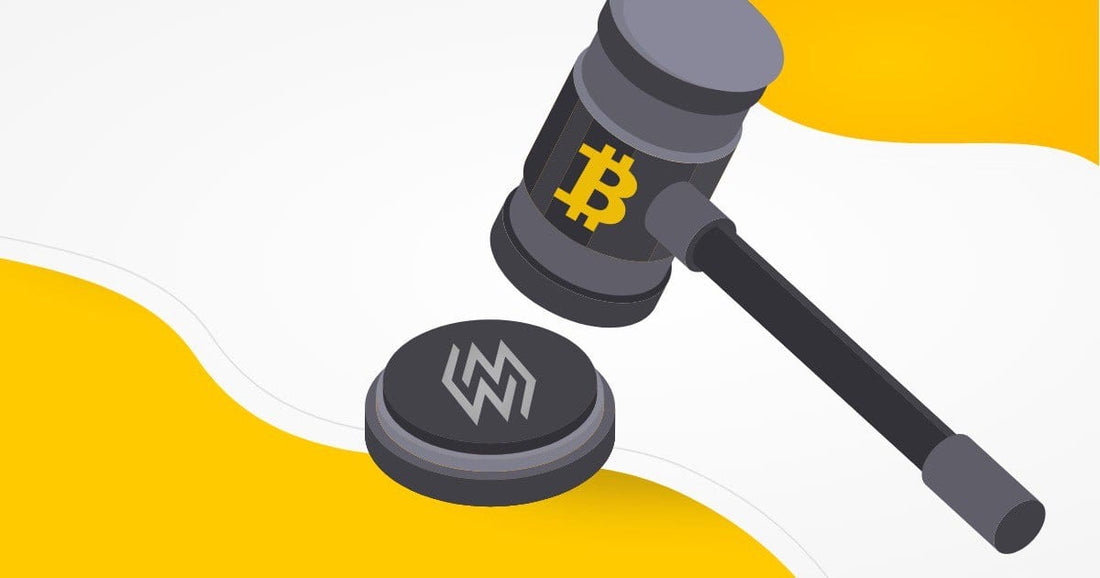Cryptocurrency mining is making headlines once again, this time involving a court battle that may have favorable tax implications for Bitcoin miners. A couple in Tennessee took the IRS to court, claiming that personally mined or staked crypto is not allowed to be taxed until it is sold or exchanged, citing it to be the creation of an asset. The current state of the case is looking positive for Bitcoin miners, which could make investments in mining equipment – already a depreciable asset – even more advantageous during tax season.
The Case
Joshua & Jessica Jarrett are fighting for a refund from the U.S. Internal Revenue Service (IRS) over coins rewarded from staking cryptocurrency. In a complaint to the U.S. District Court for the Middle District of Tennessee, the Nashville couple claimed that coins gained through mining or staking are non taxable until sold.
This is because these rewards are essentially the “creation” of cryptocurrency, an act that is comparable to an author writing a book or a baker making a cake. There is “100 years of tax law” as a legal precedent that newly created property cannot be taxed, as claimed by David L. Forst, the couple’s lawyer.
In court, Joshua Jarrett reportedly explained that he used his own resources in 2019 to create 8,876 Tezos (XTZ), a blockchain-based cryptocurrency, but has not sold any of these assets yet. The couple paid $9,407 to the IRS after reporting the tokens as “other income” and are requesting a $3,293 refund alongside a $500 tax credit to offset lost income.
According to the complaint document, federal income tax laws do not permit the taxation of tokens created through a staking enterprise. Therefore, Jarrett should only realize this income tax when he sells or exchanges this new personal property that he has created. This is based on the premise that Jarrett has not realized any profit or income from the cryptocurrency as they have only been created, not sold.
A Look at Past Cases
There are currently no existing specifications on the taxation of cryptocurrency earned from mining or staking. This particular situation has been discussed by U.S. lawmakers, writing to the IRS for the assurance that cryptocurrency received as rewards will not be taxed until those rewards are sold. This is to ensure that miners are not overtaxed.
A 1920 Supreme Court case was cited to support that held income must involve a “coming in.” Property made by a taxpayer does not “come in,” but rather goes out. They also used a 1955 ruling to back their claim, in which the court characterized income as “instances of undeniable accessions to wealth, clearly realized, and over which the taxpayers have complete dominion.”
In early March, the IRS updated its FAQ section on cryptocurrency to clarify that crypto investors who only purchased digital assets using fiat and did not sell during 2020 would not need to report these transactions.
Impacts on the Bitcoin Mining Industry
With the evidence stacking up to support the Jarretts’ case, a new precedent could be set for rewards earned through mining cryptocurrency. If the IRS loses the suit, the ruling will serve as yet another piece of evidence for Bitcoin mining as a strong investment. Mining equipment has already garnered attention for being fully depreciable on tax returns. Beyond this, these potential regulatory changes would bode well for broad acceptance for Bitcoin, accelerating its transition into the mainstream. To get the most out of your Bitcoin mining investment, both new and seasoned crypto enthusiasts stand to benefit from the support of an experienced partner to provide you with price-competitive hosting services, speedy repairs, or remote management. Wattum can help you maximize your profitability in this growing industry and provide you with expertise to help keep your costs efficient and revenue steady. To get started, give the Wattum experts a call today at 1 720-706-0673.



